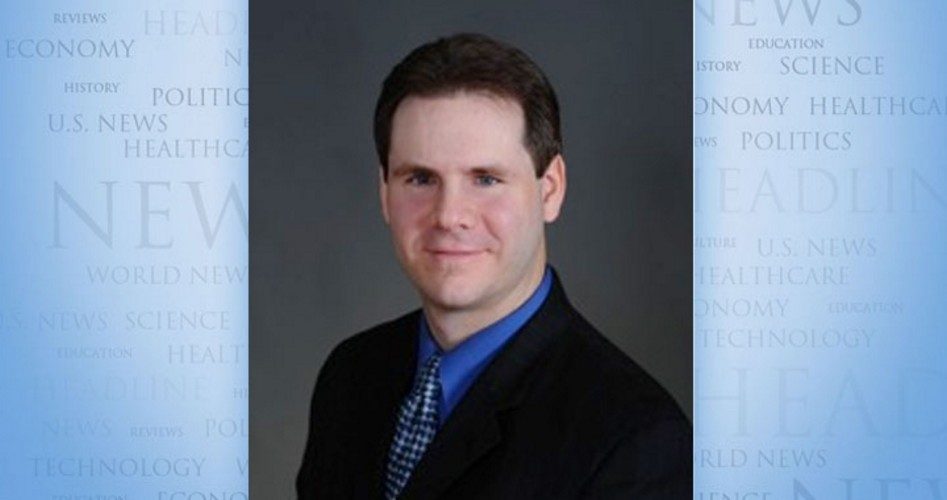
America’s fractiousness, says pundit Leonard Pitts, is the pits. We’ve lost “the willingness and ability to share a common national identity,” he complains — as a result of Republicans’ “pursuit of power.”
In an article penned last week, Tribune columnist Pitts opened citing how actor Sean Penn, who’d been in Ukraine when Russia invaded, mentioned that we Americans lack the unity he experienced in that besieged nation. Pitts points out, however, that just as in the United States after 9/11, witnessed in Ukraine is “the predictable byproduct of an immediate existential threat.”
This is assuredly a factor; why, with war making even stranger bedfellows than politics, the Nazi threat inspired us to join forces with psychopathic maniac Stalin during WWII. (Though a recent poll found that perhaps a majority of Democrats [the survey does have some nuance to it] would not fight for the U.S. were she invaded.) Yet as a very wise man once put it to me, “If you need war to ‘unite’ you, you’re not really united in the first place.”
But Pitts doesn’t think the problem is a lack of “some idealized unity,” as he puts it, at all; rather, we “no longer share a narrative … a common thread,” he writes. While this may sound to some like a distinction without a difference, Pitts doesn’t elaborate. What he does is blame this phenomenon on the GOP’s lust for power and rank-and-file Republicans’ distrust of media.
Citing an Economist/YouGov poll, Pitts notes that while Democrats are far more trusting of mainstream media, “Republicans trust almost nothing.”
CNN is trusted by only 11 percent of Republicans, Pitts relates. The Washington Post, 16 percent; PBS, 20 percent; The Wall Street Journal, 27 percent (more Democrats than Republicans trust it).
In fact, even the conservative sites (e.g., Newsmax) analyzed by Economist/YouGov were underwater with Republicans; the only exception was Fox News, which had a 53 percent GOP trust rating.
Pitts then gripes that the “average Republican trusts almost no mainstream source of information. As a result, Americans no longer proceed from the same baseline assumptions, are no longer driven by the same national aspirations, no longer understand the meaning and mission of their country in the same way.”
Interestingly, this complaint about mainstream media distrust comes from, well, a mainstream-media member. So some may suspect that Pitts’s real complaint is, “Why don’t you trust me?!”
Of course, while distrust is always bad if it descends into cynicism (this reflects detachment from reality), observers may be able to explain profound distrust of media:
Some people have ears to hear and eyes to see.
The irony is that two outlets Pitts cites, CNN and WaPo, both defamed Covington Catholic youth Nicholas Sandmann so egregiously — lied maliciously, in other words — that they had to pay him huge settlements. CNN figures were also caught on hidden video some years back admitting that the Trump/Russia/collusion narrative was nonsense, but that they were going to push it, anyway.
Given this, and that it’s just the tip of a left-wing media iceberg that seeks to sink Truth and freeze out anti-woke dissent, some may ask: Why should mainstream media be trusted?
But “trust” is an interesting concept. Only God deserves complete trust. Only gullible children (in spirit if not in body) wholly trust the wrong people. Only the detached and disillusioned descend into cynicism. The wise exercise discernment, knowing when to trust, when not to, and when to “trust, but verify,” as the Russian proverb goes.
As for the media, only a fool would trust them implicitly.
Also interesting is the concept of being “divisive,” something Pitts implies conservatives are. Oddly, it always seems as if those lacking cultural and/or political power are blamed for divisiveness. But, if, let’s say, all our leftists decided to agree with our rightists, wouldn’t we have less division?
The lesson: It takes two to tango.
So some may say that Pitts’s real lament, translated, is, “If only you’d agree with us….!”
The writer has suggestions for achieving this, too, among them being “improved policing of social media” (aka censorship). And, for sure, imagine if everyone agreed that “white privilege” exists and “white supremacy” is a problem; mass (im)migration of perhaps-unassimilable people and multiculturalism’s removal of pressure to assimilate are good things; youths can switch sexes just by willing it; Western institutions must be “deconstructed”; children should be sexualized at tender ages; criminals should be coddled; and that every other aspect of the ever-morphing “woke” agenda, subject to change without notice, should be assented to. We could perhaps then have unity.
Then we can ponder whether “unity” is by definition good and, in this Easter season, why Jesus said that He “came not to send peace, but the sword … to set a man at variance against his father.”
Speaking of which, when this division (this two-to-tango situation) exists, on whom does the onus belong? On the less powerful or less popular?
Or does it belong on those elevating lies over Truth?
As to this, do the positions in the fourth paragraph above reflect Truth? And who’s pushing them? Is it the GOP — or the mainstream media themselves and the politicians they support?
In the 1930s, the Nazis and Soviets had achieved great “unity,” do note. But a “common thread” based on a lie eventually unravels; a “narrative” (which, interestingly, means “story”) that’s a tall tale begets a land short-lived. A sword of division that can cut to the Truth is much to be preferred.


